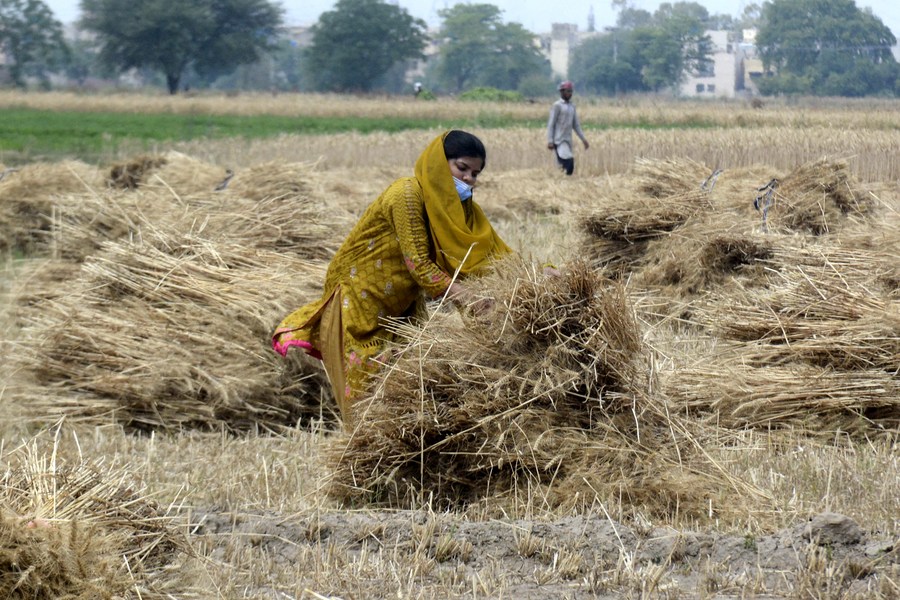
A Key Step towards Climate Resilience and Sustainable Farming
Introduction:
Gender inequality is a pervasive issue in many sectors, and agriculture is no exception. Women farmers face numerous challenges stemming from traditional gender roles, which result in men holding more decision-making power and control over resources in the agricultural sector. This unequal distribution of labor not only hampers women’s opportunities but also negatively impacts the overall productivity, sustainability, and resilience of farming systems. In this article, we will explore the implications of gender inequality in agricultural labor and highlight the urgent need to address this issue for the sake of climate resilience and sustainable farming.

- Traditional Gender Roles and Women in Agriculture:
In many societies, women are still expected to prioritize household responsibilities over agricultural work. While men typically engage in farm activities and decision-making processes, women are burdened with domestic chores, childcare, and unpaid work, making it difficult for them to fully participate in farming ventures. This division of labor perpetuates a cycle of limited opportunities, restricted access to resources, and reduced decision-making power for women, hindering the potential of agricultural systems to thrive. - Implications of Gender Inequality in Agricultural Labor:
a. Reduced productivity: When women are unable to actively contribute to farm activities due to lack of time or access, agricultural productivity suffers. This not only affects individual households but also has broader implications for food security and overall economic development.
b. Climate vulnerability: Climate change exacerbates the existing challenges faced by women farmers. As extreme weather events become more frequent and unpredictable, women are often left to cope with increased workloads and additional burdens. Their limited access to resources and decision-making power hampers their ability to adapt to climate change, making them more vulnerable to its impacts.
c. Economic empowerment: Empowering women in agriculture not only addresses gender equality concerns but also has substantial economic benefits. Studies indicate that closing the gender gap in access to agricultural resources and support services could significantly increase agricultural productivity and contribute to poverty reduction. - Promoting Gender-Responsive Policies and Programs:
To address gender inequality in agricultural labor, it is essential to implement gender-responsive policies and programs, such as:
a. Promoting women’s access to resources: Ensuring equal access to land, credit, inputs, and extension services is crucial to empower women farmers and increase their decision-making power.
b. Providing training and capacity-building: Equipping women with knowledge and skills in sustainable farming practices, climate-resilient techniques, and entrepreneurial opportunities can enhance their productivity and income-generating potential.
c. Creating supportive institutions: Fostering inclusive agricultural institutions that value women’s contributions, provide gender-sensitive support services, and facilitate their participation in decision-making processes is vital. This requires engaging with local communities, government agencies, and NGOs to change social norms and promote gender equality in agriculture. - Success Stories and Best Practices:
Highlighting successful initiatives that have addressed gender inequality in agricultural labor can inspire further action. Examples include promoting women-led farmer cooperatives, establishing gender-focused agricultural extension programs, and integrating gender considerations into climate-smart agriculture projects. These interventions have not only improved the livelihoods of women farmers but also enhanced the sustainability and resilience of farming systems.

Conclusion:
Addressing gender inequality in agricultural labor is not only a matter of social justice but also essential for achieving climate resilience and sustainable farming. Empowering women farmers and ensuring their equal participation in decision-making processes and access to resources will lead to improved productivity, increased climate resilience, and inclusive economic growth. By recognizing the vital role women play in agriculture and implementing gender-responsive policies and programs, we can create a more equitable and sustainable agricultural sector for the benefit of all.
All Categories
- Agricultural Methods
- Agriculture and Women Small Farmers Rights Awareness
- Climate Change
- Disable and Human Rights
- Disable Jobs
- Donation
- Education
- Health Issues
- Organic Foods
- Organic Vegetables
- Orphans Children
- Plastic production and disposal
- Services
- Sinking in Scarcity
- Success Stories
- Uncategorized
- Waste Management
- Women Rights
- Youth Empowerment




